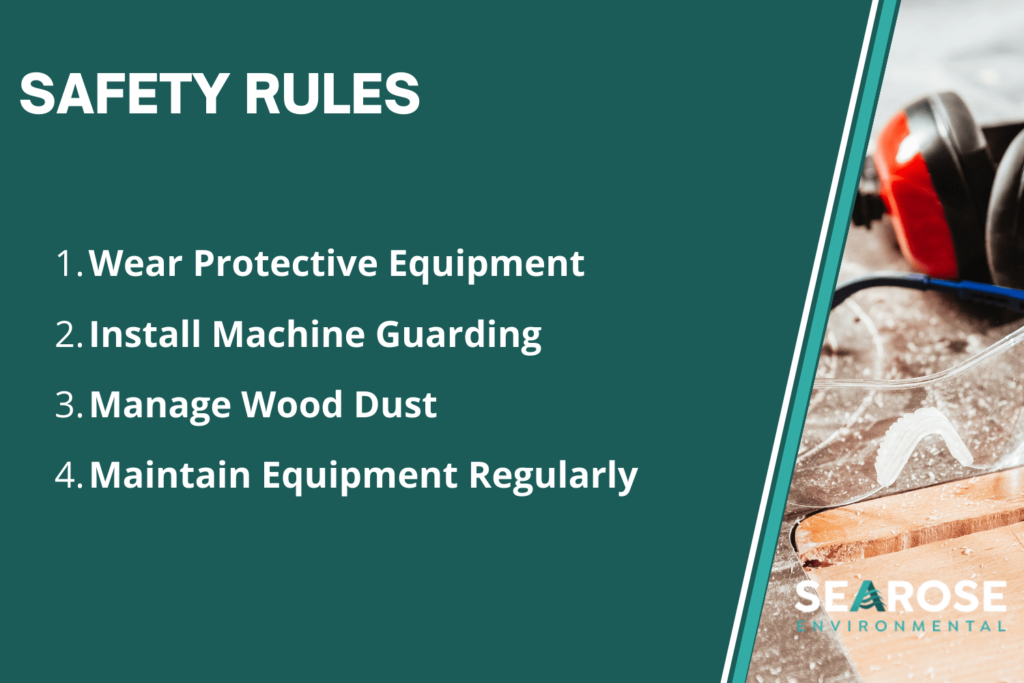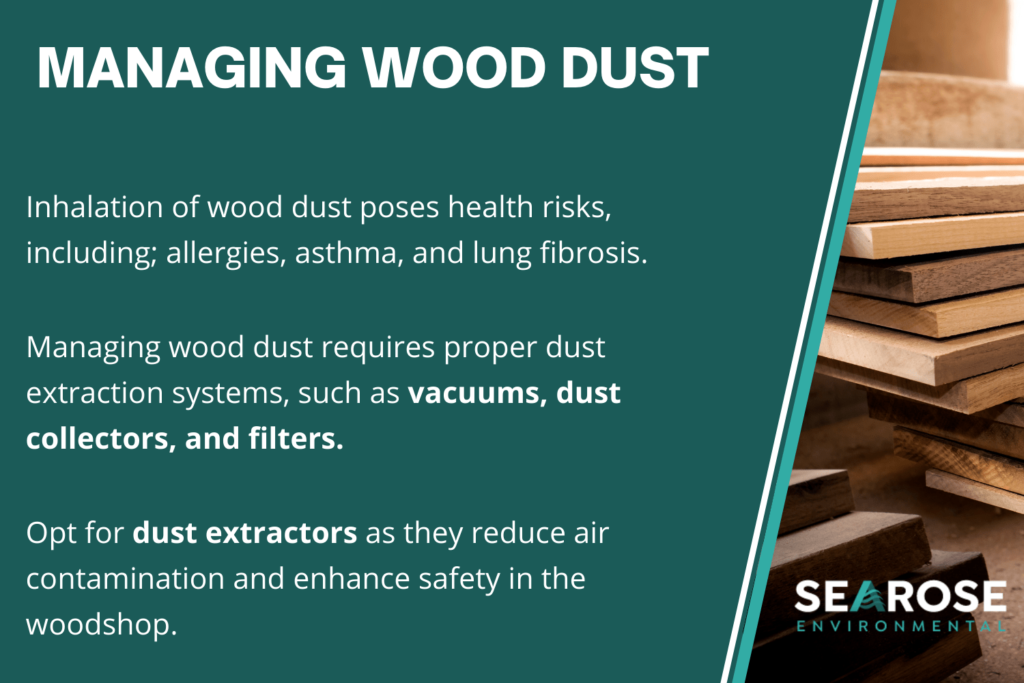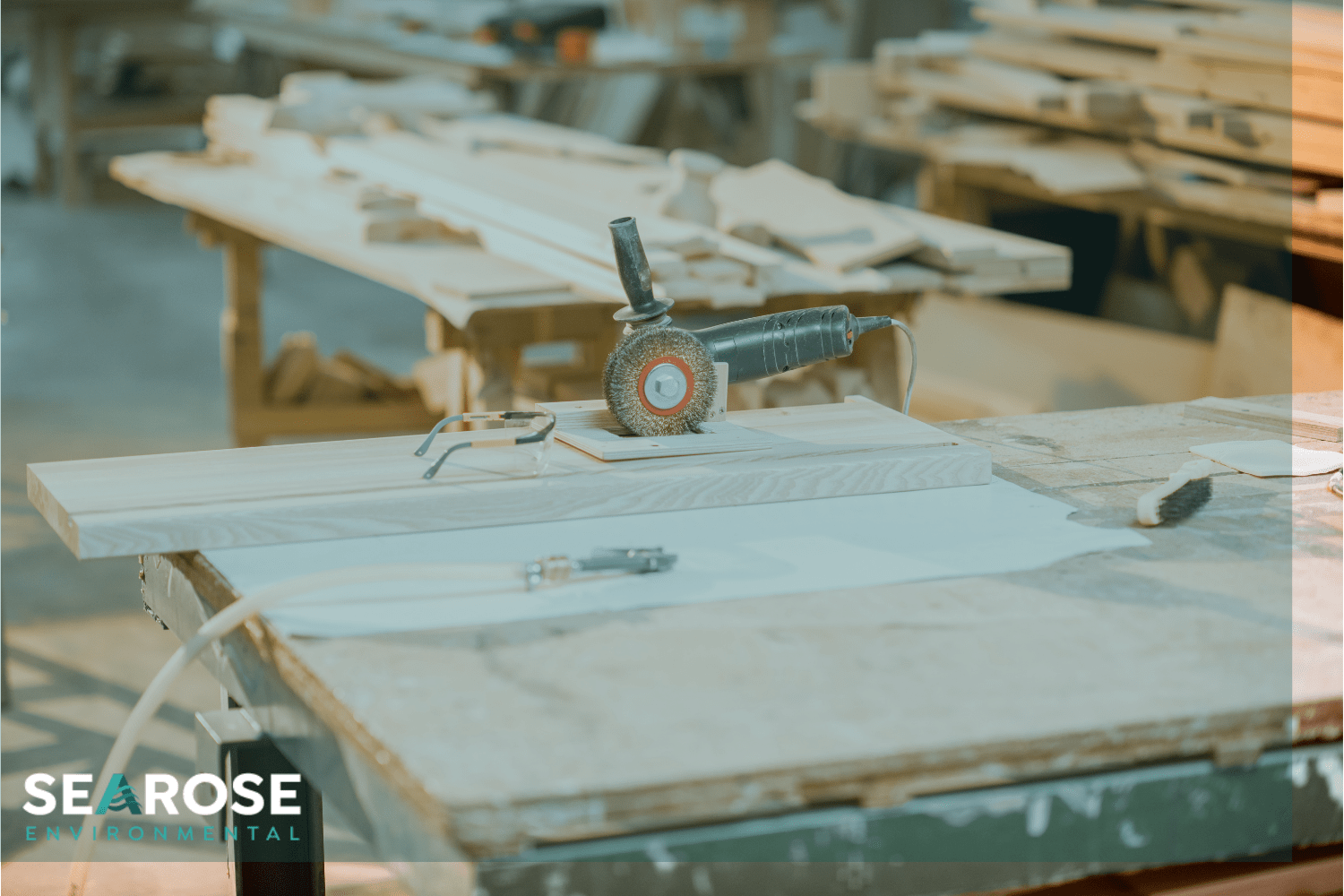When it comes to woodworking projects, safety is a serious issue and must always be the number one concern. Here are the key woodshop and carpentry safety rules you need to take note of in 2024.
There are a multitude of dangers present in a woodshop environment, especially when working with heavy equipment such as bench saws or hazardous chemicals found in glues and paints. These dangers present opportunities for you or others to get seriously hurt in the case of accidents or improper use of equipment.
Whether you’re a novice working on a personal carpentry project in your own backyard or an experienced professional woodworker, safety during woodworking projects is a crucial concern, not just for yourself but for those around you as well. This article will highlight the latest safety rules for working in a woodshop in 2024.
Table of Contents
- Wear Protective Equipment
- Install Machine Guarding
- Manage Wood Dust
- Maintain Equipment Regularly
- 2024 State Regulations for Woodshop Safety in Australia

Wear Protective Equipment
Wearing the appropriate type of clothing as part of your personal protection equipment (PPE) is mandatory when carrying out any type of woodwork or carpentry. Wood can potentially splinter or snap while being worked on and having the right PPE will provide protection from serious injuries.
Examples of appropriate woodworking protective equipment include:
- Safety Glasses — Protecting the eyes from wood chips, sawdust, and flying debris.
- Hearing Protection — Earplugs or earmuffs to reduce the impact of loud noise from power tools.
- Respirator or Dust Mask — Prevents fine wood particles and dust from being inhaled.
- Gloves — Protects hands from splinters, sharp edges, and rough surfaces.
- Steel-toed Boots — Provides foot protection from falling heavy objects or tools.
- Protective Clothing — Reduces the likelihood of clothes catching onto machinery.
Most states in Australia require woodshops to provide appropriate personal protective equipment for employees who engage in woodwork.
Install Machine Guarding
Wood cutting and processing machine equipment such as bench saws and cutting blades must be fitted with machine guarding that protects workers’ hands and bodies from dangerous moving parts.
Machine guards must be adjusted correctly and installed in a way that cannot be disabled or removed. Workers must also receive clear instructions on how to check and adjust the guard each time they use the machines to prevent accidents.
Having insufficient machine guarding on heavy equipment will result in exposing blunt or unprotected saws. This increases the risk of serious cuts or even amputation for workers.
Manage Wood Dust
Wood dust is a common by-product of woodworking and exists as fine particles of wood that persist in the air and are invisible to the naked eye. It is a significant health hazard as the inhalation of fine wood particles can lead to respiratory issues such as allergies, asthma, and more severe conditions like lung fibrosis.
Wood dust is also highly flammable and, if left to accumulate, can potentially lead to an increased risk of fires within the woodshop. Wood dust must be managed using proper dust extraction systems that include vacuums, dust collectors, and dust filters.
Placing dust extractors over sources of wood dust generation can significantly reduce the amount of wood dust contamination in the air and environment, making the woodshop safer for you and your workers.

Maintain Equipment Regularly
Keeping woodworking tools well-maintained is an important part of ensuring safety in the workshop. Ensure that all equipment is routinely checked for operability and undergoes repairs if necessary.
In addition to ensuring safe operation, well-maintained equipment will perform more efficiently and last longer. Be sure to set up a regular maintenance schedule and reminders for woodworking equipment within the workshop.
2024 State Regulations for Woodshop Safety in Australia
Each state in Australia has its own set of guidelines and regulations for occupational health and safety in carpentry workshops. We’ve included helpful links to each of them below to help you better understand how to prepare your woodshop in 2024.
- NSW Safety in the wood products industry
- Workplace Health and Safety Queensland
- SA Safework
- WA Safe use of woodworking machinery
- NT WorkSafe
Ensure Woodshop Safety with Searose
When it comes to woodworking, Searose Environmental provides leading dust extraction solutions that can be customised to your individual workshop needs. Whether you need a centralised wood dust extraction system or optimisation for your existing industrial wood dust extraction system, we can provide the necessary equipment and expertise you need. Contact our team today to get a free quote for your woodshop’s dust extraction needs.
